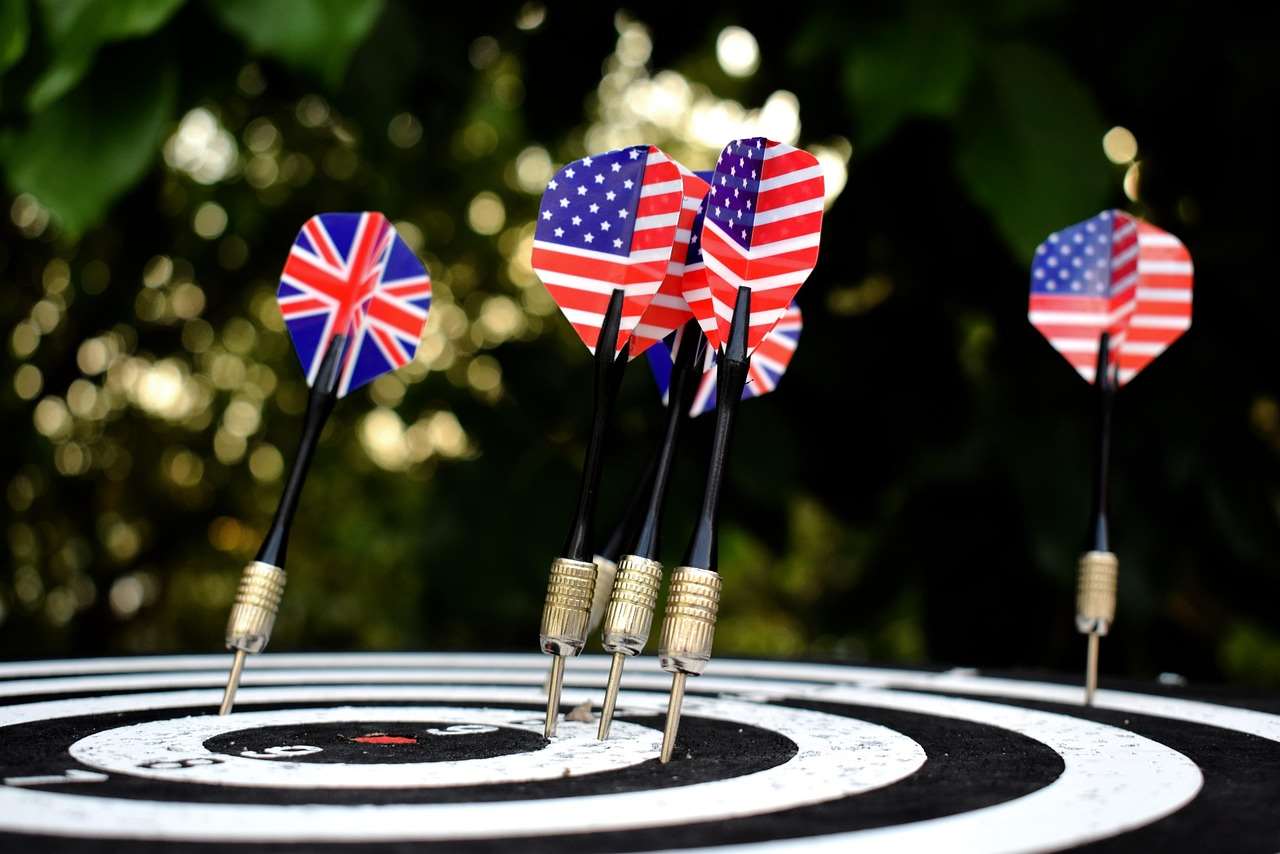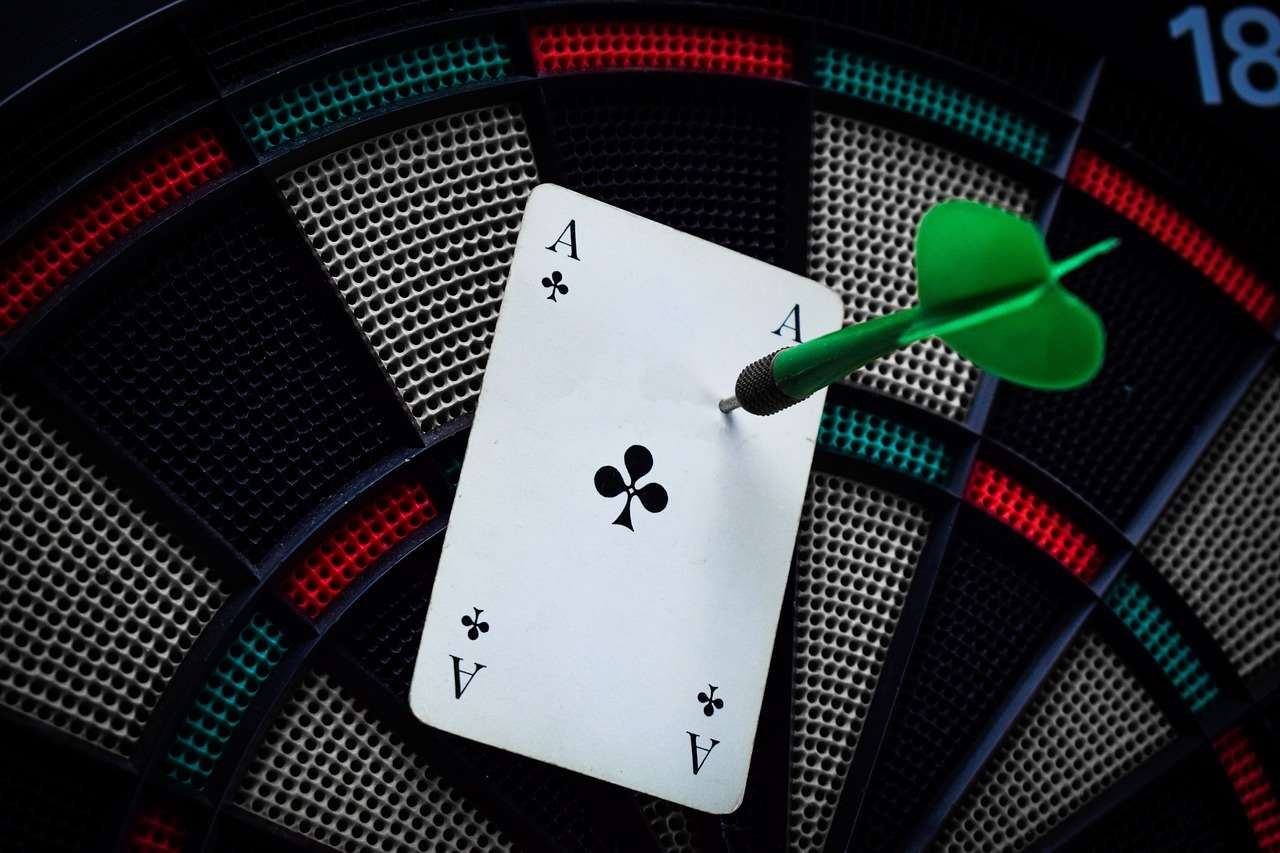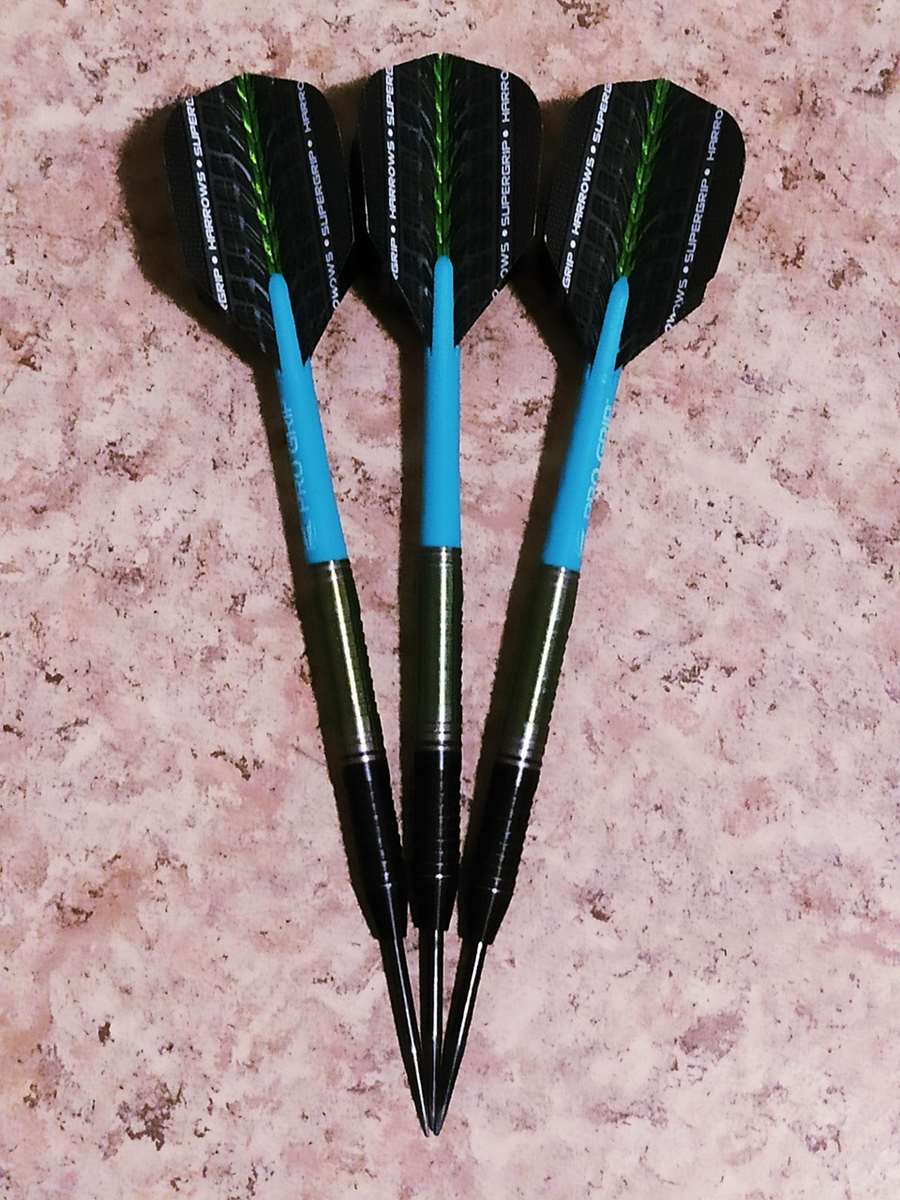If you’re using music, especially popular tracks, for walk-on music at darts events, you likely need a Walk On Music Public Performance License; this license ensures that the songwriters and publishers are compensated for the use of their work. This article will delve into everything you need to know about securing the proper licensing for your darts event, from understanding what it covers to navigating the application process and exploring potential alternatives.
⚠️ Still Using Pen & Paper (or a Chalkboard)?! ⚠️
Step into the future! The Dart Counter App handles all the scoring, suggests checkouts, and tracks your stats automatically. It's easier than you think!
Try the Smart Dart Counter App FREE!Ready for an upgrade? Click above!
Understanding the Need for a Walk On Music Public Performance License
Playing music in a public setting, like a darts tournament, falls under the realm of public performance. This means you are essentially broadcasting the music to an audience. The law protects the rights of copyright holders – the songwriters and publishers who own the music. Using their music without permission is a copyright infringement, which can lead to legal repercussions.
A Public Performance License grants you the legal right to play copyrighted music in your business or event. Think of it as a permission slip that says, “Yes, you can use this music, but you need to pay for it.” The fee is then distributed to the copyright holders. This system ensures artists and publishers are fairly compensated for their creative work.
What Constitutes a “Public Performance”? Anytime you play music outside of your private home, it is generally considered a public performance. This includes:
- Live bands or DJs
- Playing music from a CD, MP3 player, or streaming service
- Radio or television broadcasts
- Even simply using a jukebox
For dart events, this almost always applies, because you’re playing music for an audience outside of a purely private setting. It’s especially relevant for the walk-on music, which is a key part of the atmosphere at live darts matches.

Who Needs a Walk On Music Public Performance License?
Essentially, anyone organizing or hosting a darts event where music is played needs a license. This typically falls to:
- The Event Organizer: This could be a promoter, a darts league, or a specific tournament organizer.
- The Venue: Sometimes the venue itself has blanket licenses that cover events held within their space, but it’s crucial to verify this.
- Broadcasters: If the darts event is being broadcast (TV, radio, or online streaming), the broadcaster also needs to secure the proper licenses.
It’s always best to err on the side of caution and confirm who is responsible for securing the appropriate Walk On Music Public Performance License.
Securing Your Walk On Music Public Performance License: PROs and the Application Process
In most countries, Performing Rights Organizations (PROs) handle public performance licenses. These organizations act as intermediaries between music users (like dart event organizers) and copyright holders. The most prominent PROs include:
- ASCAP (American Society of Composers, Authors and Publishers): Primarily operates in the United States.
- BMI (Broadcast Music, Inc.): Another major PRO in the United States.
- SESAC (Society of European Stage Authors and Composers): A third PRO operating in the United States. SESAC is invitation-only for songwriters and publishers.
- PRS for Music (Performing Right Society): Operates in the United Kingdom.
- GEMA (Gesellschaft für musikalische Aufführungs- und mechanische Vervielfältigungsrechte): Operates in Germany.
- SOCAN (Society of Composers, Authors and Music Publishers of Canada): Operates in Canada.
You’ll likely need to obtain licenses from **multiple PROs** since each represents different songwriters and publishers. For example, if you’re playing a mix of American and British music at your darts event, you might need licenses from both ASCAP/BMI and PRS for Music. This ensures you’re covering all the bases regarding copyright protection.
The Application Process:
- Identify the PROs: Determine which PROs represent the music you’re likely to play at your event.
- Visit the PRO’s website: Each PRO has a website with information about licensing.
- Fill out the application: The application will ask for details about your event, including the type of event (darts tournament), the venue size, the number of attendees, and how the music will be used (live band, DJ, recorded music).
- Pay the fee: The fee varies depending on the factors mentioned above. PROs usually offer different rate cards depending on the type and scale of the event.
- Receive your license: Once your application is approved and the fee is paid, you’ll receive your license.

Factors Affecting the Cost of a Walk On Music Public Performance License
The cost of a Walk On Music Public Performance License is not fixed; it’s determined by several factors. Understanding these factors can help you budget accordingly and potentially find ways to minimize your licensing expenses.
- Venue Size and Capacity: Larger venues with a greater capacity generally attract higher licensing fees because the potential audience size is larger.
- Attendance: The anticipated number of attendees at your darts event is a significant factor. More attendees mean more potential exposure for the music, leading to higher fees.
- Type of Music Use: Are you using live bands, a DJ, or simply playing recorded music? Live performances often carry different rates than recorded music. The duration of music played also matters.
- Event Frequency: A one-off darts tournament will likely have a different fee structure than a recurring weekly darts league.
- Specific PRO’s Rate Card: Each PRO has its own rate card, so the cost can vary depending on which PROs you need to license from.
- Whether Admission is Charged: If you’re charging admission to your darts event, the licensing fees will typically be higher than if it’s a free event.
Negotiating License Fees: While PROs have established rate cards, there may be some room for negotiation, especially for smaller or non-profit events. It’s always worth inquiring about potential discounts or alternative licensing options.
Navigating the Complexity: Blanket Licenses vs. Per-Program Licenses
When securing a Walk On Music Public Performance License, you’ll encounter two main types of licenses: blanket licenses and per-program licenses.
- Blanket License: This license grants you the right to play any music in the PRO’s repertoire. It’s an “all you can eat” option that covers a vast catalog of songs. Blanket licenses are generally the most common and convenient option for dart events as they offer broad coverage.
- Per-Program License: This license allows you to license specific songs for specific programs or events. It requires you to keep detailed records of all the music you play and report it to the PRO. While potentially cheaper for events with very limited music use, it can be administratively burdensome for most darts tournaments, where the music selection is often diverse.
For darts events that play a variety of music, a blanket license is usually the more practical and cost-effective option. It provides peace of mind knowing you’re covered, regardless of the specific songs being played.

The Consequences of Not Obtaining a Walk On Music Public Performance License
Playing music without the proper Walk On Music Public Performance License can lead to significant legal and financial repercussions. Copyright infringement is a serious matter, and PROs actively monitor public performances to ensure compliance.
Potential Consequences:
- Lawsuits: Copyright holders can sue for damages, which can include lost profits, statutory damages (set by law), and attorney’s fees.
- Injunctions: A court can issue an injunction, preventing you from playing music at your events until you obtain the proper licenses.
- Fines: In addition to damages, you may also be subject to fines.
- Damage to Reputation: Being caught infringing on copyright can damage your reputation and make it difficult to secure sponsors or attract attendees in the future. This is particularly important, as Darts Culture And Community Guide encompasses a strong respect for the rules.
It’s simply not worth the risk to skip obtaining the necessary licenses. The cost of compliance is far less than the potential consequences of infringement.
Alternatives to Traditional Licensing: Royalty-Free Music and Creative Commons
While securing a Walk On Music Public Performance License is often the most straightforward route, there are alternative options to consider, particularly if you’re on a tight budget or looking for more creative control.
- Royalty-Free Music: This music is licensed directly from the composer or a royalty-free music provider. You pay a one-time fee for a license that allows you to use the music in various projects, including public performances, without paying ongoing royalties. Many websites offer royalty-free music libraries.
- Creative Commons Music: This music is licensed under Creative Commons licenses, which allow for free use under certain conditions. Some Creative Commons licenses require attribution to the artist, while others allow for commercial use. Carefully read the terms of each license before using Creative Commons music.
Things to Consider:
- Quality: The quality of royalty-free and Creative Commons music can vary widely. Take the time to find tracks that are well-produced and suitable for your darts event.
- License Terms: Carefully review the license terms for any royalty-free or Creative Commons music you use. Make sure the license covers public performance rights and any other uses you intend to make of the music.
- Popularity: While royalty-free and Creative Commons music can be a cost-effective option, keep in mind that it may not have the same recognition or impact as popular commercial music.

Practical Tips for Managing Music Licensing at Darts Events
Managing music licensing doesn’t have to be a headache. Here are some practical tips to streamline the process and ensure compliance:
- Start Early: Don’t wait until the last minute to secure your licenses. The application process can take time, so start well in advance of your event.
- Keep Records: Maintain detailed records of all the music you play at your events, including song titles, artists, and composers. This information may be required by PROs.
- Communicate with the Venue: Confirm with the venue whether they have any existing blanket licenses that cover your event.
- Educate Your Staff: Make sure your staff is aware of the music licensing requirements and the importance of compliance.
- Consult with an Attorney: If you have complex licensing questions or concerns, consult with an attorney specializing in copyright law.
- Leverage Technology: Use music identification software to easily track the songs being played and generate reports for PROs, which is particularly helpful if you’re using a DJ.
By following these tips, you can effectively manage your music licensing obligations and avoid potential legal issues. Don’t forget about Getting Tickets For Darts Events; manage those too and ensure your event is all set.
Case Studies: Real-World Examples of Music Licensing Issues at Events
Examining real-world examples of music licensing issues can provide valuable insights and highlight the importance of compliance. While specific darts event cases might be less publicly documented, similar situations arise in other event types.
Example 1: Festival Fiasco: A small music festival was hit with a lawsuit for playing unlicensed music during their event. The damages and legal fees nearly bankrupted the organizers. They had assumed that since they were a small event, they wouldn’t be noticed, but the PROs actively monitor events of all sizes.
Example 2: Bar Backlash: A bar was fined repeatedly for playing music from a streaming service intended for personal use. They incorrectly believed that their subscription covered public performance rights. This highlights the importance of understanding the terms of service for streaming services.
Example 3: DJ Drama: A DJ was sued for playing unlicensed remixes and bootlegs at a club. While the DJ argued that he wasn’t responsible for the underlying copyright, the court ruled that he was liable for performing the infringing music.
These case studies underscore the fact that copyright infringement can have serious consequences, regardless of the size or type of event. Securing the proper Walk On Music Public Performance License is a crucial step in protecting yourself from legal and financial liability.

The Future of Music Licensing: Technology and Evolving Regulations
The landscape of music licensing is constantly evolving, driven by technological advancements and changing regulations. Staying informed about these developments is crucial for anyone involved in organizing events.
Emerging Trends:
- Blockchain Technology: Blockchain is being explored as a way to streamline music licensing and royalty payments, making the process more transparent and efficient.
- AI-Powered Licensing: Artificial intelligence is being used to identify and track music usage in real-time, which could lead to more accurate and automated royalty distribution.
- Micro-Licensing: Micro-licensing platforms are emerging, offering short-term licenses for specific uses, which could be beneficial for smaller events with limited music needs.
Keeping Up-to-Date:
- Follow Industry News: Stay informed about the latest developments in music licensing by following industry news publications and blogs.
- Attend Industry Events: Attend conferences and workshops on music licensing to learn from experts and network with other professionals.
- Consult with Legal Counsel: If you have complex licensing questions or concerns, consult with an attorney specializing in copyright law.
By embracing technology and staying informed about evolving regulations, you can navigate the complexities of music licensing with confidence and ensure your darts events are always in compliance. Remember, a Walk On Music Public Performance License is not just a piece of paper; it’s a commitment to respecting the rights of artists and contributing to a fair and sustainable music ecosystem.
Conclusion
Securing a Walk On Music Public Performance License is a vital, and often legally required, step for any darts event using music. From understanding the basics of copyright law to navigating the application process with PROs and exploring alternative licensing options, this comprehensive guide has equipped you with the knowledge and tools necessary to ensure compliance. Remember that neglecting this responsibility can lead to severe legal and financial repercussions. Don’t take chances; prioritize obtaining the appropriate licenses for your event.
Now that you understand the importance of music licensing for your darts event, take action! Visit the websites of the relevant Performing Rights Organizations (ASCAP, BMI, SESAC, PRS for Music, GEMA, SOCAN) to begin the application process today and ensure your event is legally sound and respects the rights of music creators.
Hi, I’m Dieter, and I created Dartcounter (Dartcounterapp.com). My motivation wasn’t being a darts expert – quite the opposite! When I first started playing, I loved the game but found keeping accurate scores and tracking stats difficult and distracting.
I figured I couldn’t be the only one struggling with this. So, I decided to build a solution: an easy-to-use application that everyone, no matter their experience level, could use to manage scoring effortlessly.
My goal for Dartcounter was simple: let the app handle the numbers – the scoring, the averages, the stats, even checkout suggestions – so players could focus purely on their throw and enjoying the game. It began as a way to solve my own beginner’s problem, and I’m thrilled it has grown into a helpful tool for the wider darts community.